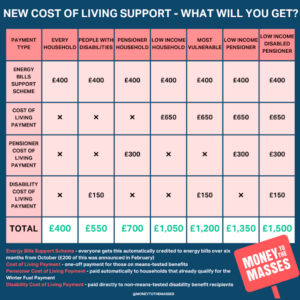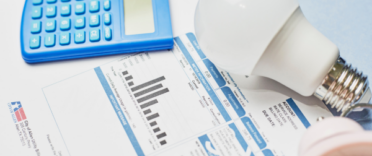Latest forecasts suggest that the energy price cap will exceed previously predicted increases by another £350. It means that the energy price cap for the average home will be £3,364 a year by January 2023, up from the current cap of £1,971. Continued volatility in the energy market means that previous predictions are falling short of the increases that energy customers will face heading into the winter period and beyond.
The energy price cap was predicted to rise to around £2,980 in October, rising to £3,003 in January 2023 so the new predictions will come as a blow to those already suffering the effects of soaring inflation and rising interest rates.
Dr Craig Lowrey, principal consultant at Cornwall Insight stated that "high wholesale prices and the UK’s continued reliance on energy imports has once again seen predictions for the domestic consumer default tariff cap rise to what are even more unaffordable levels"
How will the expected increase to the energy price cap affect me?
In the table below, we reveal how the forecasted increase to the energy price cap is likely to impact you.
| Currently paying per month | From October 2022 (Based on expected increase to energy price cap) | From January 2023 (Based on expected increase to energy price cap) |
| £100 | £165 | £170 |
| £125 | £207 | £213 |
| £150 | £248 | £255 |
| £175 | £289 | £298 |
| £200 | £330 | £340 |
| £225 | £371 | £383 |
| £250 | £414 | £426 |
| £275 | £454 | £468 |
| £300 | £495 | £510 |
What help is being offered by the government?
The government announced two energy rebates, comprising a £150 council tax rebate for those who fall within council tax bands A to D as well as an energy bill rebate of £200 that was to be repaid over 5 years. While the council tax rebate has gone ahead and been issued to those who qualified, the £200 original energy rebate was overhauled meaning all UK households are now entitled to a credit of £400 in October and crucially, it no longer has to be repaid.
A £15bn support package was subsequently announced by ex-Chancellor Rishi Sunak, meaning the most vulnerable households could now qualify for up to £1,500 in support.
Read our article "£400 energy support payment for all households in the UK" for more information.
Websites that can help if you're struggling to pay your energy bill
If you receive benefits you may be able to clear your debt with your energy supplier via the Fuel Direct Scheme. Alternatively, you may be able to get help with grants and schemes that are offered by your energy supplier or with British Gas Energy Trust which offers support for energy customers of all energy companies. For more information on the schemes available visit the Citizen's Advice website.
Finally, there are a number of charities and organisations that can help you to regain control of your money with free financial advice. More information can be found below:
- MoneyHelper (formerly the Money Advice Service)
- Turn2us
- Citizens Advice
- Payplan
- The money charity
- StepChange
- National Debtline





